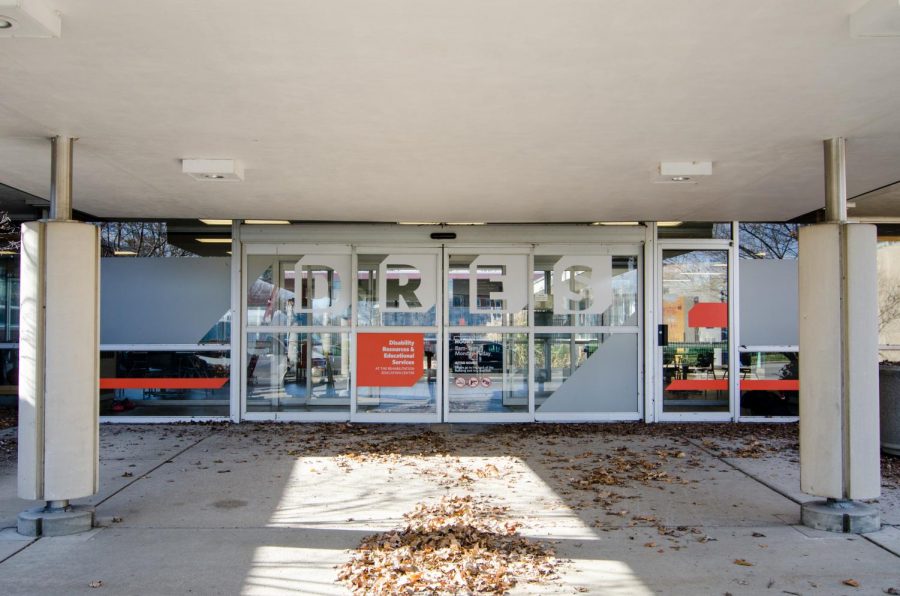Grant enables sharing of digital content
The Disability Resources & Education Services center is located at 1207 S. Oak St. in Champaign. The grant will enable sharing of content which accommodates students with print disabilities.
Mar 4, 2019
The University is splitting a $1 million grant from the Andrew W. Mellon foundation with five other schools to develop a platform on which digitized content, made for students with print disabilities, can be shared between universities.
People with print disabilities refers to those who can’t read traditional printed materials.
The University is collaborating with George Mason University, Texas A&M University, Northern Arizona University, the University of Wisconsin-Madison and University of Virginia.
“Everyone seems to be starting from scratch, and there’s not the opportunity to share and to know what’s the best way to reuse (digital content),” said J. Stephen Downie, professor in information sciences.
According to the Americans with Disabilities Act, all educational institutions within the U.S. are required to provide accommodations in a timely manner for students who have print disabilities.
Get The Daily Illini in your inbox!
Because many of the digitized textbooks created are crafted to fit the needs of the individual student, the process can be exceptionally tedious and time consuming.
Alternate format production and disability specialist Angella Anderson, who works at the University’s Disability Resources & Educational Services, said the process of transforming traditional print to digitized material can be rigorous.
“Sometimes this is typical with the word ‘modern.’” Anderson said. “If it is a specific font, (it) will turn that into ‘modem.’ It turns the ‘r’ and the ‘n’ into an ‘m.’ Because modem is a word in the dictionary, it’s not going to catch it as a misspelling, so we have to literally proof every word and make sure that it’s right.”
The act of transforming traditional print material into digital content can become a complex issue in regard to copyright ownership. Kyle Rimkus, preservation librarian, explained how copyright regulations operate within this project.
“This is an area where we are able to digitize content, reformat it and provide it to patrons. Actually, we are obligated to do so. With that being said, we are also building new systems in such a way that they are not just freely available to anybody,” Rimkus said.
One important aspect of it will be setting up the system in a way that the patrons who should be able to get to them can and those who shouldn’t cannot, he said.
It is expected to take one to two years before the University starts to see major changes in the way other universities collaborate with one another.
If the project is successful, it can revolutionize how different universities interact with each other as well as guarantee students with disabilities across the nation are receiving their digitized material in the most effective way possible.
“In five to 10 years, I would hope that this does become a platform and a service that most major research universities across the country are using and that it actually does succeed in building a platform for our disability services information to actually have access to these books,” Rimkus said. “That would be really exciting.”






